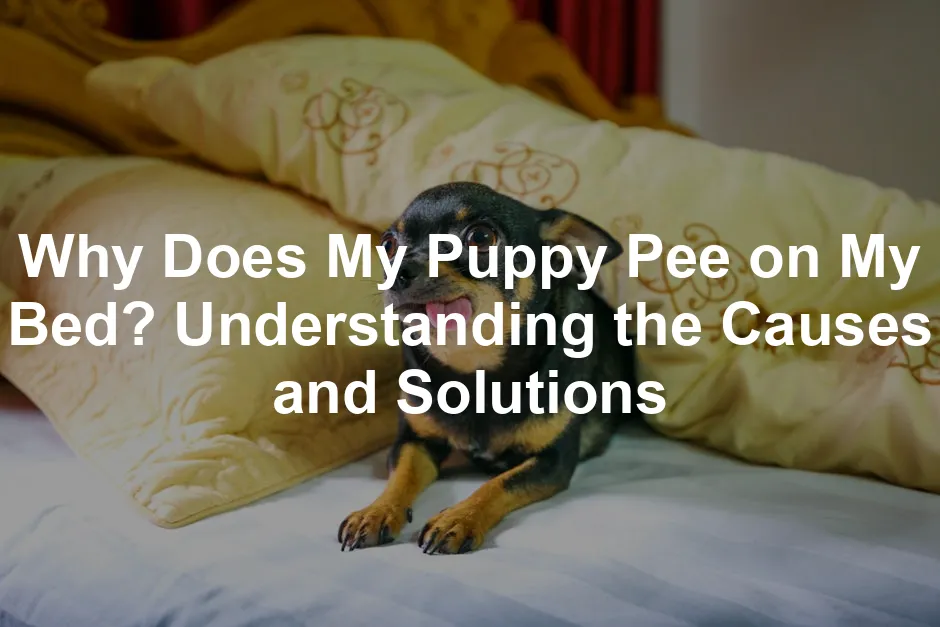
Why Does My Puppy Pee on My Bed? Understanding the Causes and Solutions
Introduction
Have you ever found a puddle on your bed? It’s frustrating, right? Many puppy owners deal with this issue. Understanding why puppies pee on beds is crucial. It helps you address the behavior effectively. This article aims to provide insights and practical solutions to stop this from happening.
Speaking of solutions, if you’re tired of those pesky stains, consider using Nature’s Miracle Advanced Stain and Odor Eliminator. It’s a game-changer for cleaning up after your furry friend!
Summary and Overview
Puppies may urinate on beds for several reasons. These include age-related accidents, behavioral issues, and medical problems. It’s vital to tackle this behavior quickly. A clean home environment is essential for both you and your puppy. In the sections below, we’ll cover the causes in detail and offer helpful solutions.
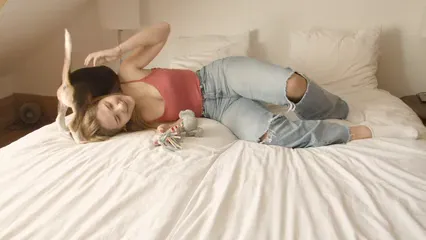
And while you’re at it, consider investing in a PetSafe ScoopFree Ultra Self-Cleaning Litter Box. It makes cleaning up a breeze and keeps your home smelling fresh!
Understanding the Causes
1. Age-Related Accidents
Puppies are still mastering bladder control. Young dogs often have accidents, especially during potty training. Puppies typically learn to hold their bladders by 4-6 months. However, regressions can occur during this stage. Statistics show that many puppies may struggle with potty training until they reach 6-8 months old. During this time, accidents are common, especially on soft, appealing surfaces like your bed.

2. Urinary Tract or Health Issues
Puppies peeing on your bed can signal health problems. Common issues include urinary tract infections (UTIs) and diabetes. UTIs are especially concerning. They can cause frequent urination and discomfort. In fact, around 14% of dogs experience UTIs in their lifetime. Conditions like bladder stones or kidney disease can also lead to similar accidents.
If your puppy suddenly starts urinating indoors, consult a veterinarian. A vet can rule out medical issues with tests. Early intervention can prevent more serious complications.
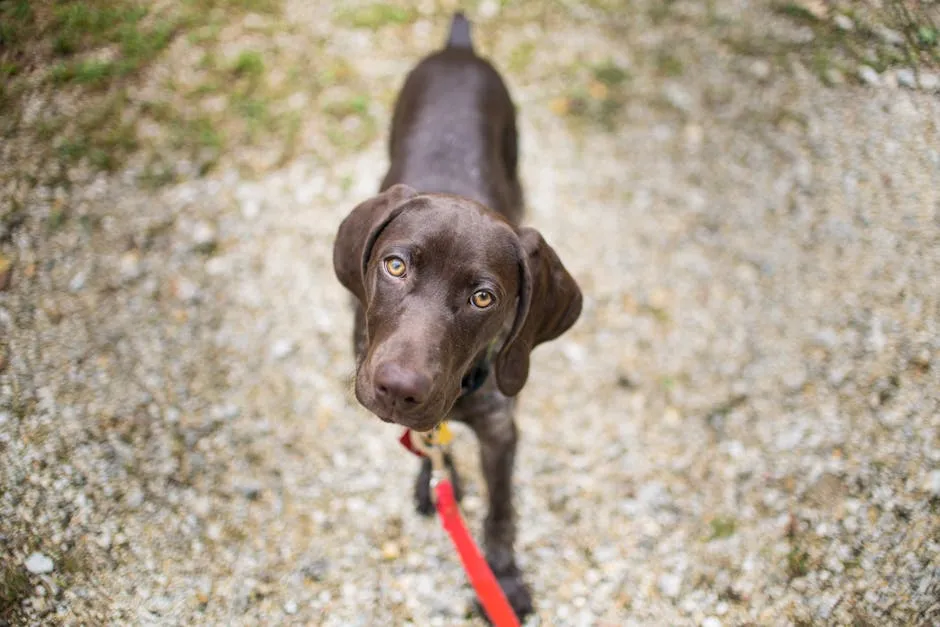
3. Marking Behavior
Dogs may pee on your bed as a way to mark territory. This behavior is different from accidental urination. When dogs mark, they release small amounts of urine to establish their presence. This instinct is strong, especially for unneutered males. They may feel the urge to mark familiar scents, including yours.
Territorial marking can happen when new pets or people enter the home. Dogs perceive these changes as threats to their space. Addressing this behavior often requires training and patience. Reinforcing your role as the leader helps reduce this instinct.
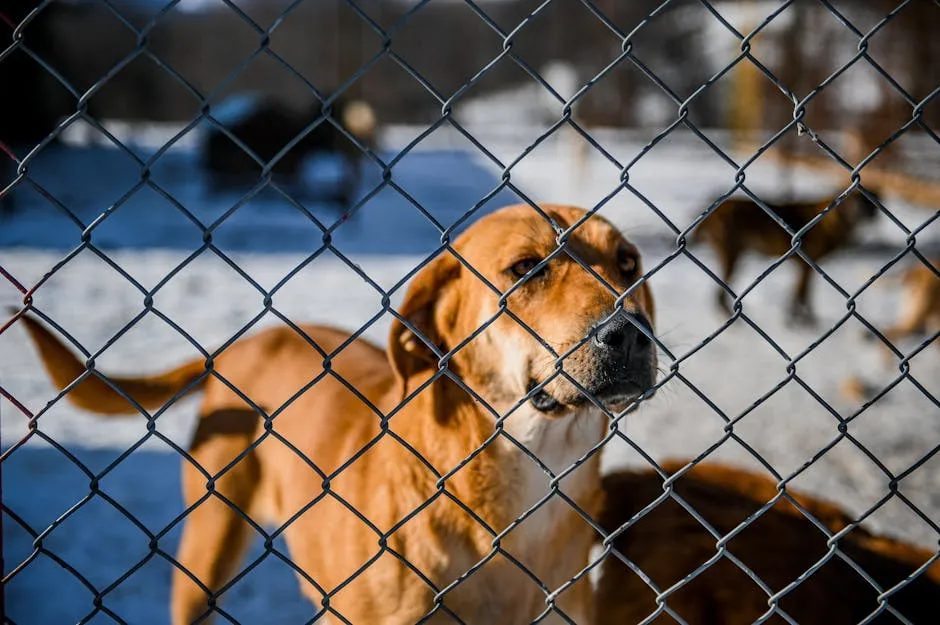
4. Anxiety and Stress
Anxiety and stress can trigger urination in puppies. Loud noises, new environments, or changes in routine often upset them. For instance, a thunderstorm can lead to accidents. Dogs may seek comfort by curling up on your bed, but anxiety can make them lose control.
To help your puppy, create a calming environment. Offer plenty of exercise and mental stimulation. Consider using calming products, like Zesty Paws Calming Chews for Dogs. These chews can help ease your puppy’s anxiety.

5. Housetraining Problems
Housetraining can be tricky. Accidents happen, but it’s essential to know the difference between an accident and incomplete training. An accident indicates your puppy might not have gotten outside in time. Incomplete housetraining means your pup hasn’t fully learned where it’s appropriate to go. Both situations require different approaches.
To reinforce positive potty behaviors, consistency is key. Take your puppy outside regularly, especially after meals and naps. Praise them immediately after they do their business outside. This helps them connect the dots between going outside and receiving positive attention.

Many owners make common mistakes during housetraining. One frequent error is not supervising their puppy closely. If you cannot watch them, consider using a crate or confined area like the AmazonBasics Dog Crate. It provides a safe and secure environment for your puppy.
How to Stop Your Puppy from Peeing on Your Bed
1. Clean Up Effectively
Thorough cleaning is vital. If you don’t eliminate odors, your puppy might be encouraged to repeat the behavior. Use enzyme cleaners designed for pet urine. These break down the smell at a molecular level. For bedding, wash it with hot water and an enzyme cleaner like Bissell SpotClean Portable Carpet Cleaner.
Make sure to treat any mattress or furniture stains properly. Blot the area first, then apply the cleaner, letting it sit before rinsing. This ensures no trace of the scent remains.
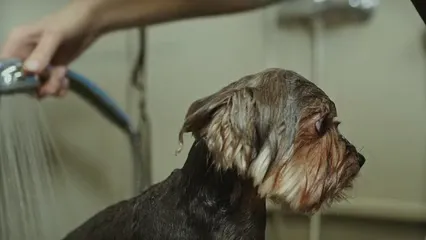
2. Establish a Routine
Establishing a consistent potty schedule is crucial for your puppy. Puppies often need to urinate every 1-2 hours. Take them outside frequently, especially after meals and naps.
Statistics show that puppies can typically hold their bladders for about one hour for each month of age. For example, a three-month-old puppy may need a bathroom break every three hours. By keeping a routine, you help your puppy learn when and where it’s appropriate to go.

3. Limit Access to the Bed
Preventing access to your bed is essential. This helps break the habit of urinating there. One effective strategy is to use baby gates. They can block off your bedroom when you’re not around. Crates are another great option. They create a safe space for your puppy while keeping them away from your bed.
When using a crate, ensure it’s comfortable. Your puppy should see it as a cozy den. Additionally, supervision is key. When your puppy is loose in the house, watch them closely. If you catch them heading to the bed, redirect them immediately. Establishing clear boundaries helps your puppy understand where they’re allowed to go.

4. Positive Reinforcement Training
Positive reinforcement makes training enjoyable for you and your puppy. It encourages desired behaviors without using negative tactics. When your puppy goes outside, reward them promptly with treats or praise. This strengthens the connection between outdoor potty breaks and positive experiences.
Effective rewards can be small treats, affectionate words, or their favorite toys. Use these rewards consistently to reinforce good habits. Training techniques like using a Dog Training Clicker can also work wonders. This method helps your puppy associate the sound of the clicker with good behavior.

Consistency is vital in training. If you catch your puppy in the act of peeing indoors, calmly interrupt them. Take them outside immediately. Once they finish outside, reward them to reinforce the desired behavior. This approach nurtures a positive learning environment.
5. Consult a Professional
Sometimes, behavior issues persist despite your best efforts. In such cases, consulting a veterinarian or a dog trainer is wise. A vet can rule out any underlying health concerns. They may suggest tests if medical issues like urinary tract infections are suspected.
Behavioral training can also be beneficial for persistent problems. A qualified trainer can provide tailored strategies to address specific issues. They can guide you in creating a structured training plan. To find a qualified trainer, check local directories or online resources.
Remember, seeking help is not a sign of failure. It shows your commitment to helping your puppy. With the right support, you can overcome this challenging behavior together.

Conclusion
In this article, we’ve explored why puppies pee on beds. Age-related accidents, health issues, and marking behaviors all play a role. Understanding these reasons is key to solving the problem effectively.
Remember, patience is essential when addressing this behavior. Puppies are learning, and setbacks can happen. By being proactive and consistent, you can help your furry friend develop good habits.

And while you’re at it, consider a comfy bed for your pet! The PetFusion Ultimate Dog Bed provides the comfort they need to relax and helps reduce anxiety!
Don’t hesitate to seek professional help if needed. With a little time and care, you can create a happy, healthy environment for both of you.
FAQs
Why does my puppy pee on my bed at night?
Nighttime accidents often relate to anxiety or a full bladder. If your puppy hasn’t fully emptied before bedtime, they might feel the urge to go in the night. Additionally, some puppies experience anxiety when left alone, leading to accidents.
Is my puppy trying to assert dominance by peeing on my bed?
Many believe that urination is a sign of dominance. However, this is a misconception. Dogs often pee on beds to mark their territory. It’s more about comfort and security than asserting power.
What should I do if my puppy continues to have accidents after training?
If accidents persist, return to the basics of potty training. Ensure your puppy is taken outside frequently. If the behavior continues, consult a veterinarian to rule out any underlying health issues.
Can certain dog breeds be more prone to urinating on beds?
Yes, some breeds may show tendencies towards anxiety or marking behaviors. For example, small breeds often have higher anxiety levels, leading to more accidents. Understanding your puppy’s breed traits can help you manage these behaviors effectively.
How can I tell if my puppy’s urination is due to a medical issue?
Look for signs such as frequent urination, straining to urinate, or blood in the urine. If your puppy exhibits these symptoms, it’s best to consult a veterinarian. Early intervention is crucial for any health concerns.
Please let us know what you think about our content by leaving a comment down below!
Thank you for reading till here 🙂
All images from Pexels




